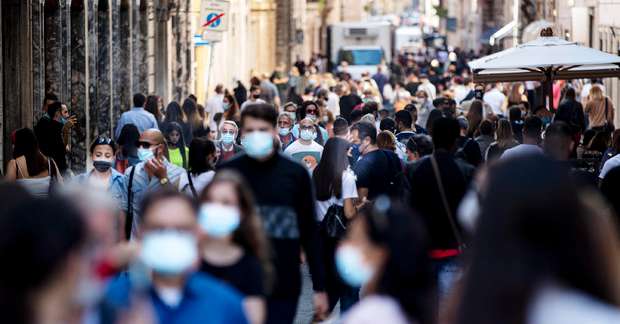ROMA. In Italy, which from tomorrow will be all white and where you can stay without a mask if you are outdoors (but you have to have it with you, and wear it inside), there are still two million and 700 thousand citizens who are over 60 years old. and they have not even made a dose of vaccine, therefore they have no protection against Covid despite being the category that risks the most serious consequences in the event of contagion.
“From tomorrow we lower the masks outdoors, it is a positive sign, we will start again after a year and a half to conquer spaces of normality. But we must not stop being careful, the guard must always remain high”, said the regional councilor for Health of Lazio, Alessio D’Amato.
The latest government report confirms what remains the main problem of the vaccination campaign, which is certainly not the scarcity of doses feared by the regions given that there are almost 5.5 million in the refrigerators and the Commissioner for the emergency Francesco Figliuolo has reiterated that 14.5 million ‘shots’ will arrive in July compared to the 15.3 delivered in June, with a drop of only 5%. A situation that pushes the regions themselves to anticipate the recalls for those over 60 who have already had the first dose, to try to curb the Delta variant whose diffusion, in less than a month, has quadrupled from 4.2% of the total. of infections at 16.8%.
Being able to reach as quickly as possible the subjects most at risk who have not booked through call centers and hubs, and to convince those who have not yet wanted to vaccinate among the over 60s, therefore remains the main objective.
“Better to cover people over 50 years old – underlines the immunologist Antonella Viola from the University of Padua – rather than vaccinating children”. The numbers, updated to Friday 25 June, however, say the opposite: compared to 7 days ago, when there were still 2 million and 833 thousand Italians to be vaccinated with the first dose, only 140 thousand were reached, 20 thousand a day compared to an average of administrations that is now close to 600 thousand in 24 hours.
A clear sign that the Regions are struggling to track down the 354 thousand over 80 (7.79% of the total population of this group), the 813 thousand in the 70 to 79 age bracket (13.51%) and the one and a half million between 60 and 69 years (20.20%) who have not yet been vaccinated. Not only. The report indicates that the administrations with Astrazeneca and Johnson and Johnson – the first usable only for the over 60 and the second recommended for those over 60 according to the latest indications of the Aifa – were very limited precisely in the age group. older than 60 years compared to those with Pfizer and Moderna: since last Friday only 8,808 first doses of Astrazeneca and 13,487 of the single-dose J&J have been injected, while 103,522 and 14,370 first doses have been administered respectively of Pfizer and Moderna. To curb the Delta variant, vaccinations must therefore be hastened, especially for those over 60. This is why more and more regions are considering speeding up the recalls with the second dose of Astrazeneca since the authorized interval is between 4 and 12 weeks.
A flexibility that is appreciated by the Figliuolo structure given that the general himself had wished for it in the letter sent to the Regions on 3 June last. “With the approach of the summer season – he wrote – we are asked to implement flexible vaccination booking procedures that allow citizens to define the vaccination schedule from the choice of the date of the first dose in order to avoid, as far as possible, that the second coincides with the periods of absence from the areas of residence “.
Against the Delta variant, the coordinator of the Scientific Technical Committee Franco Locatelli stressed the need for sequencing and tracing to be enhanced, but also hypothesized the return of the red areas.
–

